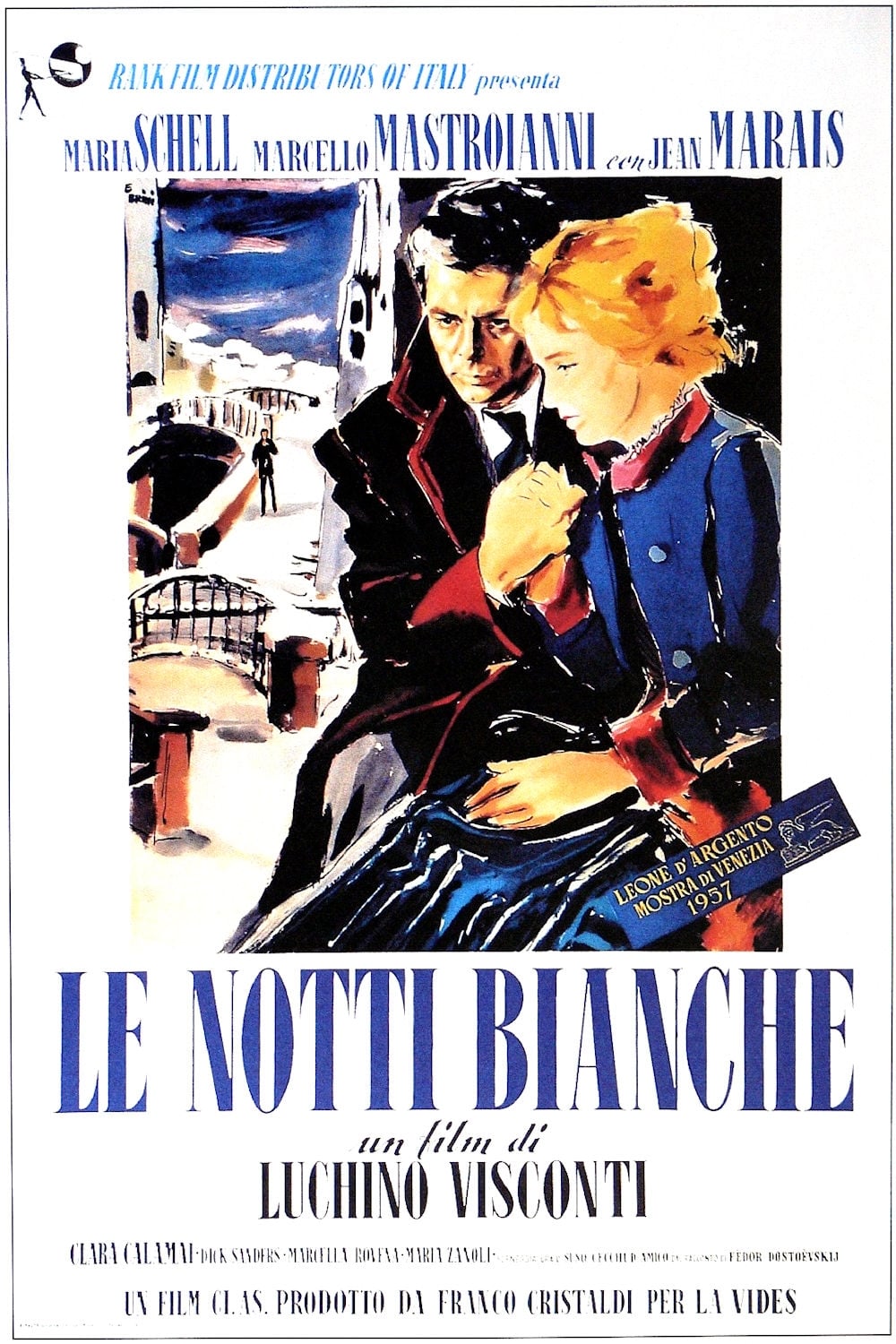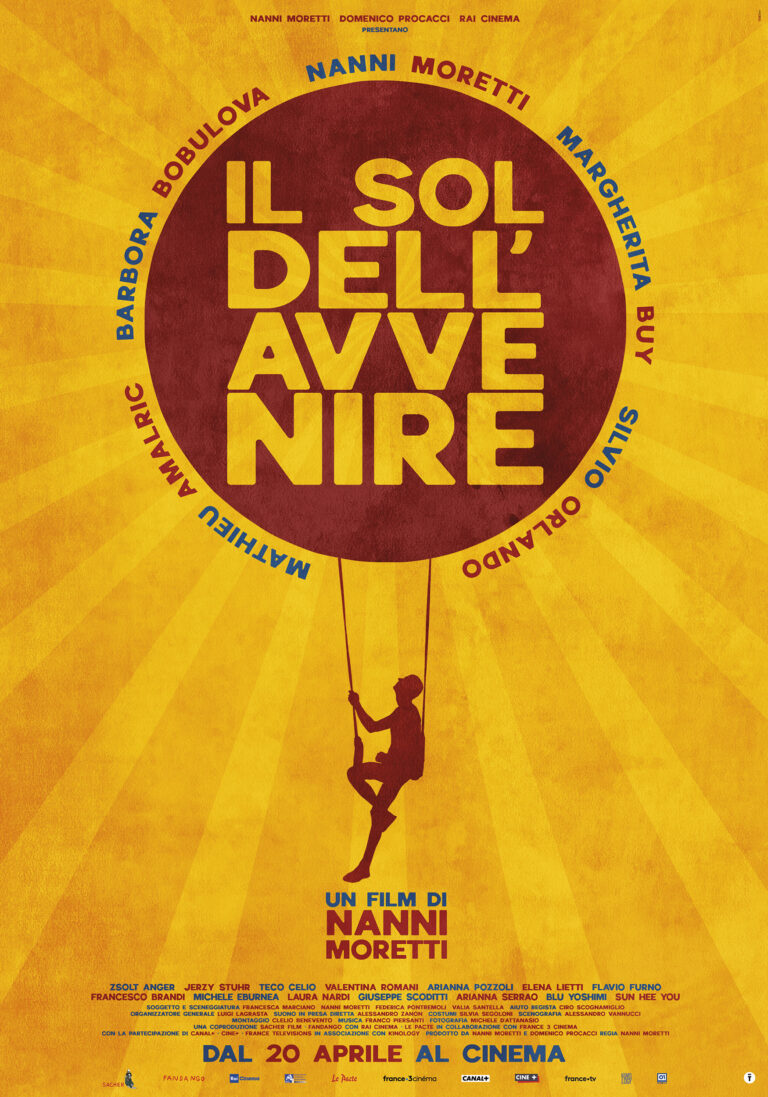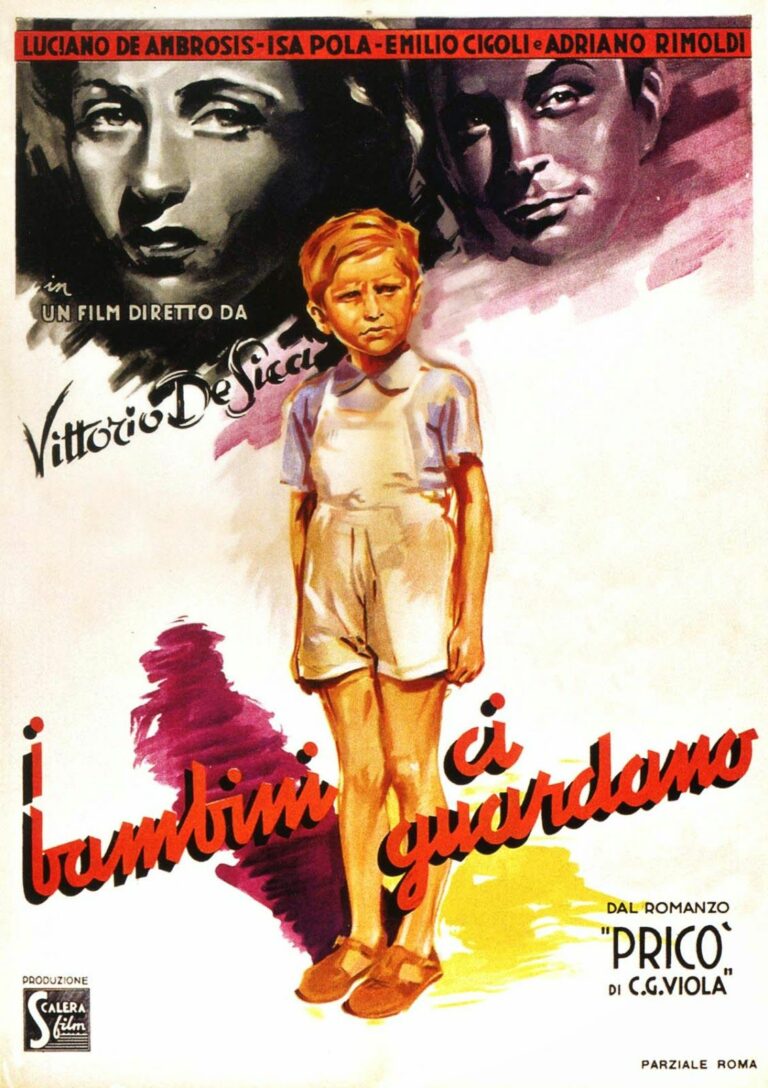
Luchino Visconti’s Le Notti Bianche (1957) is a poetic and visually enchanting adaptation of Fyodor Dostoevsky’s 1848 short story White Nights. This Italian classic, starring Marcello Mastroianni and Maria Schell, is a testament to Visconti’s ability to blend rich cinematography with deeply emotional storytelling.
The film delves into themes of loneliness, unrequited love, and fleeting connections, encapsulating the bittersweet beauty of human relationships.
A Brief Overview of the Plot
Set in the fog-laden streets of a dreamy Italian town, Le Notti Bianche follows Mario (Marcello Mastroianni), a lonely and timid clerk who stumbles upon Natalia (Maria Schell), a vulnerable young woman crying on a bridge late at night.
Captivated by her beauty and melancholy, Mario approaches Natalia, and the two form a delicate bond as she shares her sorrowful story.
Natalia reveals that she is in love with a man (played by Jean Marais) who had promised to return to her after a year but has since disappeared. Despite Mario’s growing feelings for her, Natalia remains fixated on her absent lover.
Over the course of four nights, the two navigate their emotions in a world suspended between reality and dreams, culminating in an unforgettable and poignant ending.
Themes in Le Notti Bianche
Loneliness and Human Connection
At its heart, Le Notti Bianche is a study of loneliness and the yearning for connection. Both Mario and Natalia are isolated in their own ways—Mario as a stranger in the city, drifting through life without meaningful relationships, and Natalia as a woman trapped in the past, clinging to the hope of her lover’s return.
Their brief encounter is a fleeting respite from their solitude, highlighting the power of even temporary human connections.
Unrequited Love
The film explores the pain and beauty of unrequited love. Mario’s feelings for Natalia are genuine, yet they remain unreciprocated as her heart belongs to someone else. This dynamic mirrors the emotional complexity of Dostoevsky’s original story, portraying love as both a source of joy and suffering.
Dreams vs. Reality
Visconti blurs the line between dreams and reality throughout the film, using surreal imagery and atmospheric lighting to create a world that feels almost otherworldly. This dreamy aesthetic complements the characters’ internal struggles, as both Mario and Natalia grapple with their desires and the harsh truths of their circumstances.
Visconti’s Artistic Vision
Cinematography and Visual Style
Visconti, renowned for his meticulous attention to detail, transforms the film’s setting into a character in its own right. Shot by Giuseppe Rotunno, the cinematography captures the ethereal beauty of the town’s deserted streets, dimly lit canals, and misty bridges. The black-and-white visuals enhance the film’s mood, emphasizing the contrasts between light and shadow, joy and sorrow, hope and despair.
The town itself, though fictitious, is a blend of studio sets and real locations, crafted to evoke a timeless and placeless quality. This deliberate design choice reinforces the film’s dreamlike atmosphere, allowing viewers to immerse themselves in its emotional landscape.
Music and Sound Design
Nino Rota’s haunting score adds another layer of depth to the film, underscoring the characters’ emotional journeys. The music alternates between melancholic and hopeful, mirroring the shifting tones of the story. Rota’s compositions elevate key moments, making them even more poignant and memorable.
Faithful Yet Unique Adaptation
While Le Notti Bianche stays true to the essence of Dostoevsky’s White Nights, Visconti brings his own artistic sensibilities to the story. He relocates the narrative from St. Petersburg to an unnamed Italian city, infusing it with a distinctly Italian sensibility while retaining the universality of its themes. This blending of cultural contexts enriches the film, making it both a tribute to Dostoevsky and a product of Visconti’s genius.
Performances
Marcello Mastroianni as Mario
Mastroianni delivers a deeply empathetic performance as Mario, capturing the character’s vulnerability and earnestness with subtlety and nuance. His portrayal of a man yearning for love and belonging is both relatable and heart-wrenching, making Mario a compelling and sympathetic protagonist.
Maria Schell as Natalia
Maria Schell shines as Natalia, embodying the character’s fragility and unwavering devotion with grace. Her expressive face and emotional range bring Natalia’s internal conflict to life, making her a captivating and tragic figure.
Jean Marais as The Stranger
Although his screen time is limited, Jean Marais leaves a lasting impression as Natalia’s mysterious lover. His presence serves as a catalyst for the story’s emotional climax, representing both the allure and the cruelty of unfulfilled promises.
The Emotional Climax
The film’s final moments are a masterclass in bittersweet storytelling. Mario, after spending four nights hoping to win Natalia’s love, is left heartbroken when her lover returns. Natalia’s reunion with her beloved is joyful, yet it comes at the expense of Mario’s happiness. The juxtaposition of their emotions—her ecstasy and his despair—creates a powerful and unforgettable conclusion.
This ending, true to Dostoevsky’s story, emphasizes the fleeting nature of human connections and the inevitability of unrequited love. It is a reminder that not all relationships are meant to last, but even brief encounters can leave a profound impact.
Legacy and Reception
Le Notti Bianche was met with critical acclaim upon its release and remains a cornerstone of Italian cinema. It won the Silver Lion at the 18th Venice Film Festival and continues to be celebrated for its poetic storytelling, exquisite visuals, and powerful performances.
The film’s exploration of universal themes, combined with Visconti’s artistic vision, has ensured its lasting relevance. It has inspired countless filmmakers and continues to resonate with audiences around the world, proving that the complexities of love and loneliness are timeless.
Why Le Notti Bianche Endures
More than six decades after its release, Le Notti Bianche remains a cinematic gem. Its delicate balance of romance, melancholy, and visual splendor makes it a deeply moving experience for viewers. Whether you are a fan of classic cinema, a lover of literature, or someone who appreciates beautiful storytelling, Le Notti Bianche offers a timeless exploration of the human heart.






